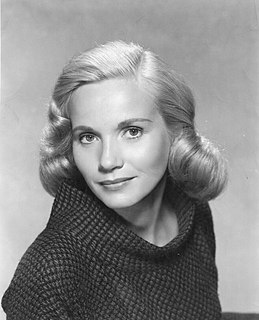A Quote by Wayne Dyer
Related Quotes
Forgiving is love's toughest work, and love's biggest risk. If you twist it into something it was never meant to be, it can make you a doormat or an insufferable manipulator. Forgiving seems almost unnatural. Our sense of fairness tells us people should pay for the wrong they do. But forgiving is love's power to break nature's rule.
I don't know how I would have gotten through this life without someone to really love me and I love them, him, and them [family]. It's forgiving. Love is very forgiving to one another and your friends and it's a powerful, powerful emotion and it's my favorite emotion in life. Now, write that down and read it and remember it.
The most important aspect of love is not in giving or the receiving: it's in the being. When I need love from others, or need to give love to others, I'm caught in an unstable situation. Being in love, rather than giving or taking love, is the only thing that provides stability. Being in love means seeing the Beloved all around me.
There's a certain feeling of giving, a certain feeling of generosity in love songs. When you sing a song of love, you're actually giving something to yourself, too. You're singing and casting these affirmations of love out into the universe. It resonates in your body in a way that feels extraordinary.
We're not giving what we're called to give, unless that giving affects how we live - affects what we put on our plate and where we make our home and hang our hat and what kind of threads we've got to have on our back. Surplus Giving is the leftover you can afford to give; Sacrificial Giving is the love gift that changes how you live - because the love of Christ has changed you. God doesn't want your leftovers. God wants your love overtures, your first-overs, because He is your first love.
We believe we are hurt when we don't receive love. But that is not what hurts us. Our pain comes when we do not give love. We were born to love. You might say that we are divinely created love machines. We function most powerfully when we are giving love. The world has led us to believe that our wellbeing is dependent on other people loving us. But this is kind of upside down thinking that has caused so many of our problems. The truth is our well being is dependent on our giving love. It is not about what comes back; it is about what goes out!



































